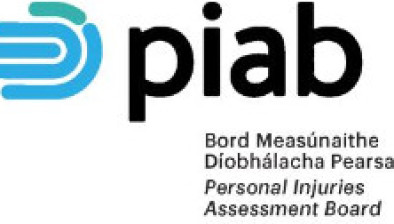High Court: Discovery ordered in personal injuries case despite defendant claiming privilege against self-incrimination

Killian Flood BL
The High Court has granted discovery against a defendant in personal injuries proceedings, rejecting a submission that discovery infringed the defendant’s right to self-incrimination.

About this case:
- Citation:https://www.courts.ie/acc/alfresco/bee32652-16ab-4a7a-9d39-a3eada35781e/2021_IEHC_343.pdf/pdf#view=fitH
- Judgment:
- Court:High Court
- Judge:Mr Justice Garrett Simons
The claim was made by the defendant company that, arising out of a prosecution by the Health and Safety Authority of the incident, the discovery of documents would prejudice its defence of criminal proceedings.
The court held that the documents were clearly relevant to the proceedings and that there was no justification for “short-circuiting the usual procedures for asserting privilege” which required the delivery of an affidavit of discovery.
Background
The plaintiff brought personal injuries proceedings against the defendant, Arrabawn Co-operative Society Limited, arising out of an accident at work. The plaintiff claimed to have suffered serious burns while in the process of removing a filter from a pipe carrying scalding milk. The allegations of negligence included failures to provide adequate training and failures to heed previous warnings that the filter cap and shut off valves were not functioning properly.
A defence was delivered which was a complete traversal of the claim. The defendant also made allegations of contributory negligence, stating that the plaintiff was “entirely the author of his own misfortune.”
A motion for discovery was subsequently issued by the plaintiff seeking ten categories of discovery. These documents included inter alia accident report forms, operating procedures/safety statements, training records, records of previous accidents and risk assessments.
When the motion came on for hearing, the defendant argued that discovery should be refused because of an ongoing HSA prosecution regarding the accident. Specifically, it was stated that the discovery of the documents would infringe the defendant company’s right to self-incrimination and the documents were therefore privileged. Further, it was claimed that the court had no jurisdiction to rule on the privilege claim owing to the parallel criminal proceedings.
High Court
Giving judgment in the case, Mr Justice Garrett Simons rejected the defendant’s objections to the motion and granted discovery in favour of the plaintiff. Considering the jurisdictional objection first, the court held that it was well-established that the High Court had exclusive jurisdiction to determine claims of privilege. Citing Keating v. Radio Telefís Éireann [2013] IESC 22, the court held that a party was “not entitled unilaterally to withhold relevant evidence from the court.”
As such, the court moved to consider whether the categories of documents sought by the plaintiff were relevant and necessary to the proceedings. The court outlined the recent commentary on the discovery process by the Supreme Court in Tobin v. Minister for Defence [2019] IESC 57. It was noted that in asserting its claim of privilege against self-incrimination, the defendant had not made any submissions on the relevance or necessity of the documents.
The court considered the pleadings in the case and the potential relevance of the documents to those pleadings. The court held that the blanket traversal of the plaintiff’s allegations by the defendant meant that all factual matters were put in issue in the case.
As such, the court took the view that each of the documents were relevant to specific pleadings made by the plaintiff, and therefore each category satisfied the test for discovery. Further, the court noted that the defendant had failed to adequately particularise its claim of contributory negligence.
The court then considered the merit of the privilege claim. It was held that the default position required claims of privilege to be made in an affidavit of discovery. However, it was possible for a court to refuse to direct the filing of an affidavit, but only where it was inevitable that a privilege claim would succeed (Carey v. Independent News & Media plc [2021] IEHC 229).
Applying the case law to the facts, the court held that the claim of privilege was not sufficiently strong to prevent discovery in the case. The court held that it was implicit in the defendant’s claim against self-incrimination that the plaintiff would deliver the documents to the HAS, which would be a breach of undertakings. There was no guarantee that this would occur, the court said.
Further, it was held that the HSA had extensive statutory powers to compel the disclosure of documents by the defendant. As such, all the documents sought were potentially available to the HSA, if not already in its possession.
Finally, the court noted that it was far from certain that a corporate body could involve the privilege against self-incrimination or that such privilege included the documents in the case. The court held that much of the requested documentation pre-dated the accident and were not created against the will of the company, so it was at least arguable that privilege could not apply to those documents.
In summary, the court found that it was not inevitable that the claim of privilege would succeed. Accordingly, the court held that the Carey threshold had not been met.
Conclusion
The court duly ordered the discovery of the documents and held that any claim of privilege had to be asserted in the ordinary way under an affidavit of discovery. The affidavit had to state the grounds on which the objection was made and the facts relied on had to be verified. The court indicated a provisional view that the plaintiff was entitled to his costs.







